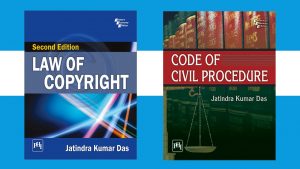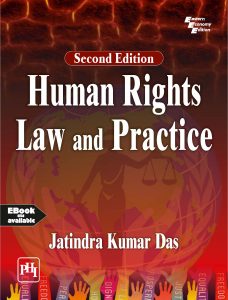Human rights law is still waiting for its theoretician to systematize the thoughts and speculations on the subject and define desirable goals. The definitional process of it is not so easy as the term “right” is an ambiguous term used to describe a variety of legal relationships. Sometimes, “right” is used in its strict sense of the right holder being “entitled” to something with a co-relative duty on another, while “right” sometimes is used to indicate an “immunity” from having a legal status. Sometimes it indicates a “privilege” to do something, while sometimes it refers to the “power” which creates a legal relationship. Entitlement, immunity, privilege, power etc. are identified as rights and thus, each concept invokes different protection and procedures with variant results. Sometimes human rights are described as “inalienable rights.” If we speak of inalienable rights, what do we mean? Do we mean a right to which no exceptions or limitations are valid? Or do we mean a right, a “prima facie” right with a special burden on the proponent of any defeasance? Or do we mean a principle that must be followed unless some other principle is weighty enough to allow abridgment arises? Or whether considerations justifying an exception as the same moral category as those that underlie the right? Some scholars have identified human rights as those which are important, moral, and universal. Whenever we say a right is “important” we are speaking about several qualities such as its aesthetic value, its intrinsic value, its instrumental value, its value regarding the scheme of right, etc. Similarly, the words “universal” and “moral” are even more complicated. It is, therefore, not certain what makes a right universal, moral, and important, and who decides on this? Probably for this reason Amartya Sen asked: “What exactly human rights are? Sen in his article “Elements of a Theory of Human Rights,” advanced the cause of social theory of human rights and affirms more resolutely “the need for a theory of human rights.
The book “Human Rights Law and Practice” written by J. K. Das and published by PHI Learning Pvt. Ltd. emphasizes the critical evaluation of modern human rights law and practice with special reference to India, and was prepared with the author’s extensive teaching and research expertise. It assesses current debates on numerous topics relating to life, liberty, equality, and human dignity, as well as their reflections in international human rights law, referring to state practices as reflected in constitutional provisions, judicial decisions, and suitable legislation.
This rationally organized and comprehensive work is divided into nine chapters. Beginning with the theoretical basis of human rights law, the book moves on to the “International Bill of Human Rights,” exhibiting many aspects of civil and political rights as well as economic, social, and cultural rights. It further discusses the importance of human rights law in the protection against inhuman wrongs and examines a large number of debates concerning human rights to the development and protection of the environment. The book then goes on to look at numerous human rights issues in Indian constitutional law.
The book’s second half focuses on the preservation of women’s and children’s rights, which has been at the forefront of many human rights debates. It also covers the scope and ambit of indigenous peoples’ and minorities’ rights, as well as their protection. The book concludes by examining the value and reasons of human rights law in safeguarding the rights of disabled people (divyang).
The first edition of the book Human Rights Law and Practice (2016) was cited and referred by various International jurists in the field of human rights law. Mfonobong David Udoudom, Okpe Okpe, Timothy Adie, and Samuel Akpan Bassey wrote an article on Environmental Ethics and it was published in Budapest International Research and Critics Institute Journal in 2019, where the authors referred to chapter four (Human Rights to Development and Protection of the Environment) of the book Human Rights Law and Practice (2016)( https://www.bircu-journal.com/index.php/birci/article/view/236). Thompson Chengeta, wrote an article on Populist Candidates and the Fitness for Public Rule: An International Human Rights Law Perspective, and it was published in Harvard International Law Journal in 2018, Thompson Chengeta referred the chapter one (Theoretical Foundations of Human Rights Law) of the book Human Rights Law and Practice (2016) (https://harvardilj.org/wp-content/uploads/sites/15/Chengeta_published.pdf.) Christof Heyns wrote an article on ‘Autonomous weapons in armed conflict and the right to a dignified life: an African perspective,’ and it was published in the South African Journal On Human Rights in 2017, Christof Heyns has taken an important idea on right to live with human dignity from the first edition of author’s book, Human Rights Law and Practice (2016) (https://journals.co.za/doi/epdf/10.1080/02587203.2017.1303903).
Recently the second edition of the book has been released. The salient features of this edition are:
- It has thoroughly revised, updated, and enlarged the entire book, and
- It has also newly incorporated – (a) law on HIV/AIDS Management, (b) Covid-19 Management law, (c) legislative aspect of protection of the environment (d) recent law on triple talaq,(e) de-criminalisation of adultery, (f) right of Hindu women to offer worship in Sabrimala temple,(g) right to access to justice, judicial review, legal aid, and speedy trial,(h) surrogacy and reproductive right, (i) law on POSCO, (j) hard law and soft law, and (k) recent law on
The author has written the book in a very lucid language. He explored the difficult concepts of human rights easily. He brings out various judicial decisions in the book so that readers of this book will understand the contemporary relevance of Human rights. Though the book is primarily intended for LL.B., B.A.LL.B., LL.M., and human rights courses, it will also be useful to researchers, academicians, jurists, lawyers, judges, and civil society members.
About the Author of the Books
Jatindra Kumar Das, Ph.D. (Banaras Hindu University), is Professor and Dean, in the Faculty of Law at the University of Calcutta, Kolkata. He has rich teaching experience and professional proficiency in the field of legal research. He has been a member of various academic and government bodies. He has authored many books and articles on the subject of law, the recent being Code of Civil Procedure and Law of Copyright, also published by PHI Learning.

Go to the links below to know about the books in detail and buy
https://www.phindia.com/Books/BookDetail/9788195161157/human-rights-law-and-practice-das
https://www.phindia.com/Books/BookDetail/9788196378950/code-of-civil-procedure-das
https://www.phindia.com/Books/BookDetail/9788194800200/law-of-copyright-das
Review by
Saurav De, Assistant Professor of Law, School of Law and Justice, Adamas University, Barrackpore-Barasat Road, 24 Parganas North, Jagannathpur, Kolkata, West Bengal 700126


Leave a Reply